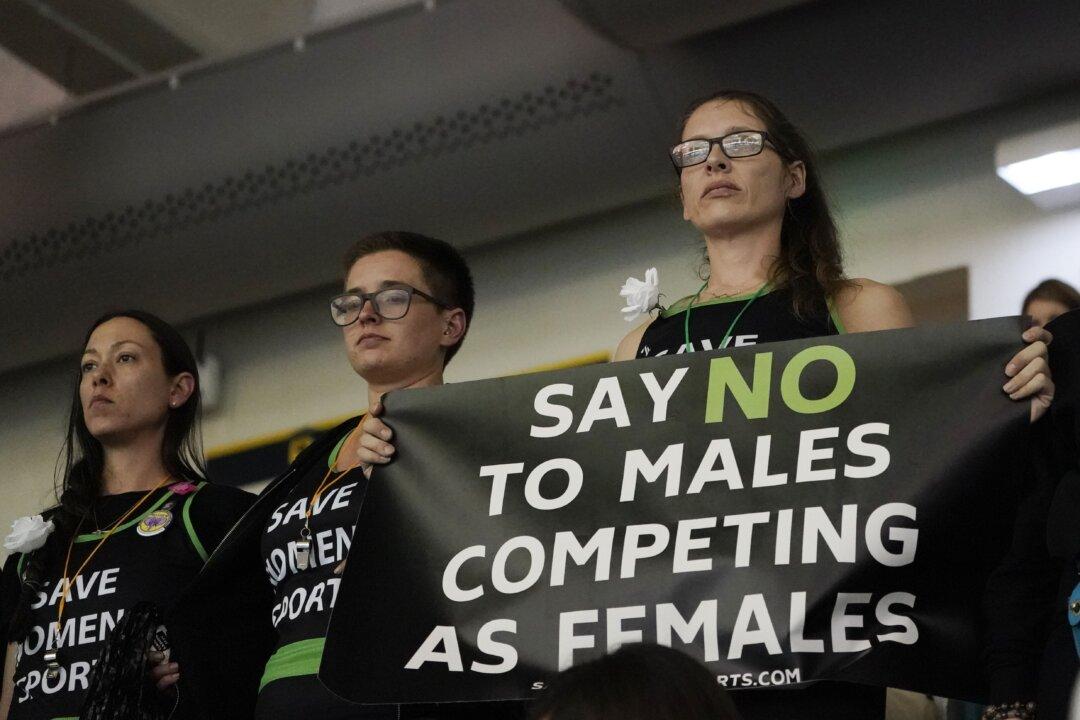West Virginia Attorney General Patrick Morrisey, on April 24, became the 16th state attorney general to sign a promise to support legislation to safeguard the sports opportunities and personal privacy of female high school and college students.
At the signing ceremony in Charleston sponsored by the organization Independent Women’s Voice (IWV), Mr. Morrisey, a Republican who is running for governor, stated that “the integrity of all sports and the safety of women is under attack by the woke Left.”





